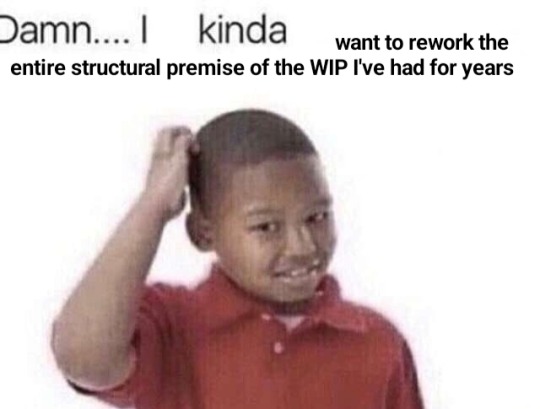alcis • i try to be a writeblr :p • sometimes writing, sometimes drawing, always thinking
Last active 2 hours ago
Don't wanna be here? Send us removal request.
Text
Writing Theory: Dialogue
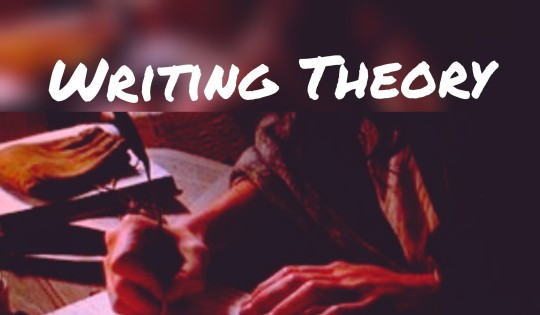
One question, I often get asked on this blog concerns dialogue and how to write it. Dialogue is the characters speaking to one another or even to themselves and while it sounds easy, it can be difficult to chose what your character might say or how they might say it or even how it might present on the page/word doc/napkin you're writing it on.
Content: The What and Why
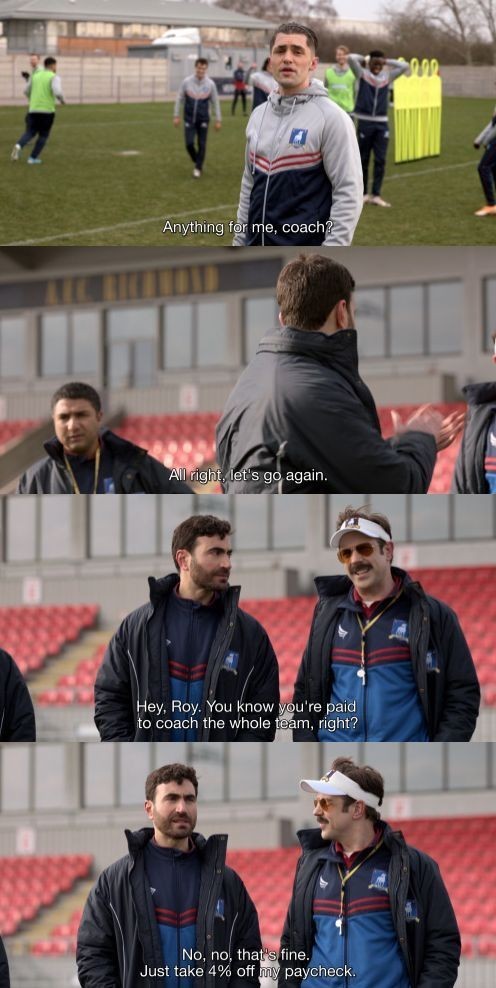
What is your character actually saying? Your character is in a situation (which hopefully you put them in or at least know what is going on, if you do not, it is OK). But in most situations, most characters interact in some way, whether it is verbal or not. What your character says has to link to the situation in some way. Picture yourself on a bus sitting next to a friend and you have just seen a dog out of the window. What would be the response or the natural line of conversation here? Probably 'Oh, that dog is cute.' or 'This journey is taking forever.' etc. It unlikely would be a long monologue about a character's deepest darkest secrets or an admission of murder. It is unlikely, but of course not impossible. But generally, one usually tries to keep the conversation to the present and the now. Allow your character to get their point, or even part of it, across to who they talking about clearly. Remember not only does their companion need to know what is being said, but as do your readers.
Why is this person saying this? There is a deeper level to what anybody says and we all know this. A person will generally keep to neutral phrases or topics in order to keep the peace, distance themselves from whoever they are having the conversation with or a person will be curt and short with somebody they are not getting along with or a person will be polite and formal to somebody who demands the respect. There is a reason behind word choice, a reason behind tone and even topic. You won't have to delve into the intricacies of the 'hello' or 'hey' types of dialogue but say if a character was in a situation they must or do chose their words carefully, then you have to consider the why of it as you write the conversation.
Characteristics of Speech
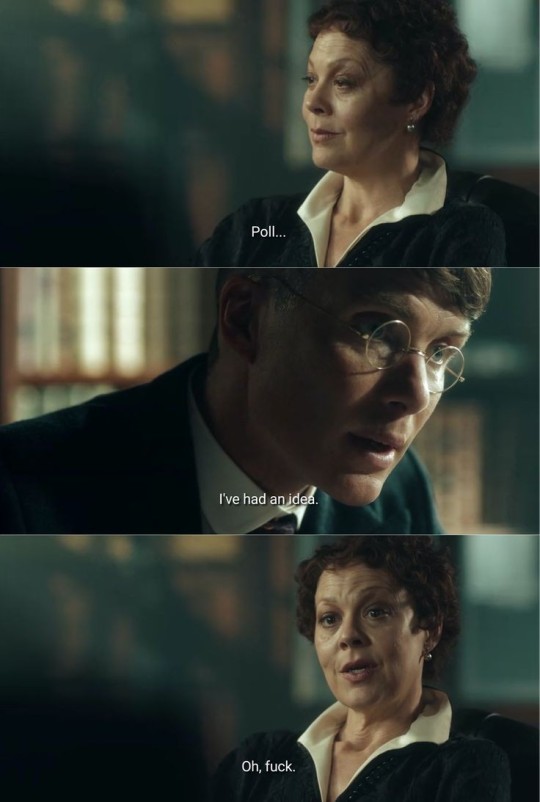
Characters don't talk like they are reading from an instruction manual. Personality, experience and other factors effect how your character might speak. Next time you are in a group setting, focus on how the people around you speak, whether its the sentence structure, the tone, the volume or the flow of their words. No character speaks the same as another, and nor should they. I go further into this in this post here. Now you have established your character's voice as it pertains to personality, now consider the actual voice of your character. How would you describe your character's voice? Even if you don't include a description of it in your narrative, you should have some idea of how your character speaks. Some people have gravelly voices, high pitched voices, clear, garbled, etc. You can of course, fan cast a voice if you wish. The way your character speak can give away things about them as people. Contractions, slang and colloquial phrases are often used to denote those of working class or poorer factions whether the lack of them, including a larger vocabulary, are often attributed to a wealthier, more educated class. You can say a lot about somebody by the way they speak and is an important tool in the entire show don't tell deal. Speaking of...
Showing, Not Telling when Your Character is Yapping
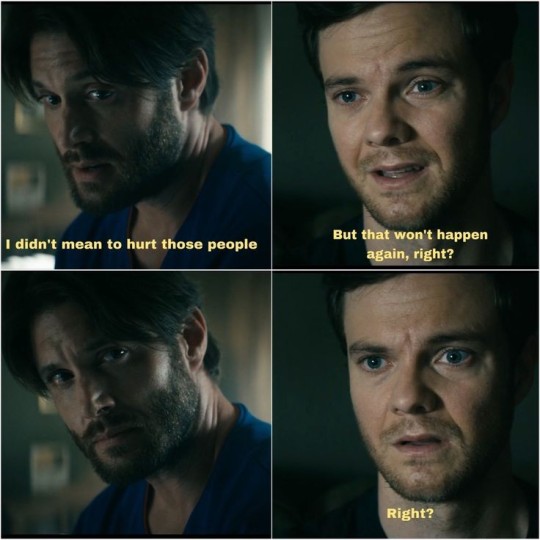
People don't often come out with what they really want to say. Thankfully or else I would be unemployed and in jail.
Concealment: Like I said before, characters will sometimes chose words or specific tones when speaking or breaking off at certain points to conceal what they are thinking. The dialogue might look something similar to using different approaches either with a character trailing off before the offending phrase (...) or catching themselves (-) or hesitating/considering their words/pausing before speaking. It doesn't often mean a character is being evasive, they may be avoiding harming somebody's feelings.
Class/Social rank: Like I said above, the way somebody speaks can be an indication of their status in society. This is not a bad thing, we have different ways of speaking because we come from different walks of life, we have totally different experiences. Writing the character's voice with this in mind can indicate your character's background.
Nationality/Culture: As in the real world, we don't all speak the same language, it makes us who we are and marks out our culture and place in the world. Phrases, sayings and specific words or even pauses to consider the wording or sentence structure can denote a character from having a different mother tongue or culture than those around them. Your character may sometimes have to tailor what they say to somebody of a different culture or nationality even if they speak the same language. For example, if I'm writing a post here or in my WIP, I often have to steer clear of slang, sentence structure. grammar structure and phrases that non-Irish people are not familiar with.
Emotion: Emotion and dialogue walk hand in hand, a character will not speak without some emotion behind it and most emotions make us want to say something. Anger will make our words sharper, harsher, more abrupt. Happiness will make words flow faster, more positive and sometimes even jumbled. Grief will make one sound disconnected, numb and unable to think straight. The way your characters speak can tell your reader and the rest of the cast able to read their emotional state even if they cannot see their face or your helpful dialogue tags.
Sensibilities and Personality: Word choice and avoidance of certain words can tell somebody a lot about the person speaking. Somebody who avoids cursing or using 'vulgar' language might be considered proper, mannerly and formal. Somebody who does might be judged. Somebody who avoids topics that are considered taboo is somebody who aligns to social norms and expectations while somebody who tends to venture into incendiary topics is likely not and more free willed. These are not bad things but it can tell you a lot about the person speaking or in the way that person responds to somebody's words.
On Dialogue Tags and the Controversy of 'Said'

(nobody would ever fucking say that)
I don't buy into this drama over dialogue tags. Some writers will denounce them, some swear by them and they have been arguing over this as often as we do about the Oxford Comma. The real truth is that it is up to you. It is not a cardinal sin to use them and there is nothing - NOTHING - wrong with using the word said. There are of course some dialogue tags I personally hate and some I love but there is nothing wrong with the word 'said' or 'says'. Here are a few commonly used tags.
A
Accused: Used to pin the blame on somebody.
Added: Usually used when the character is adding to something they or somebody else has said.
Agonized: When a character is distressed over something.
Agreed: Used when a character allows something or agrees with something that is said.
Acknowledged: Used when giving voice to a fact.
Announced: Used for a statement.
Asked: Posing a question
Answered: To address a question.
Addressed: When a character draws attention to something or draws the attention of somebody.
Affirmed: Used when a character is stating an opinion or fact.
Apologized: When a character is saying sorry for something.
Approved: When a character is giving their support to a fact or something somebody has said.
Articulated: When a character expresses a thought/idea.
Asserted: When a character affirms an opinion firmly.
Advertised: Used when a character is drawing attention to something.
B
Babbled: Used when a character is talking excitedly, often nonsensically.
Backtracked: Used when a character is going back on something they have said.
Badgered: Used when a character is nagging another.
Bawled: Used when a character is crying out, usually wildly and very loudly.
Bellowed: When a character is shouting.
Began: When a character begins a sentence or thought.
Bemoaned: When a character complains of something.
Bit: Used when a character is being sharp with something that is irritating them or angering them.
Blamed: Used when a character is assigning blame for something.
Bleated: When a character is complaining or moaning, usually used in a derogatory way.
Blurted: When a character says something without pause or thought.
Boasted: When a character displays self-pride.
Boomed: When a character speaks loudly.
Broadcasted: Used when a character is announcing something, usually loudly.
C
Called: When a character cries out for somebody.
Chanted: When a character speaks in a monotone or often repeating words over and over.
Chattered: When a character speaks rapidly, usually out of nerves or excitement.
Chastised: When a character rebukes another character.
Cheered: Used when a character is excited or pleased about something.
Chimed: When a character adds something to something already said.
Choked: Used when a character is having a difficult time getting the words out.
Chuckled: When a character laughs slightly.
Chortled: When a character laughs slightly and breathlessly.
Coughed: When a character’s breath catches.
Croaked: Used when a character’s voice is strained or dry.
Crowed: When a character boasts loudly about something.
Cried: When a character exclaims or weeps.
Cursed: When a character use swear words or denounces another character.
Cautioned: Used when a character warns somebody.
Complimented: Used when a character is lavishing praise on somebody.
Condemned: When a character denounces something.
Considered: Used when a character is thinking aloud.
Conferred: When a character discusses something with another, usually quiet.
Commented: Used when a character is expressing a thought or opinion.
Complained: Used when a character is annoyed over something.
Criticized: When a character comments negatively on something.
D
Declared: When a character announces something.
Denoted: When a character is indicating something.
Dictated: When a character is insisting on something, usually forcefully.
Drawled: When a character is talking in a low, slow voice.
Droned: When a character is talking on and on, usually derogatory.
E
Elaborated: When a character goes into detail explaining something.
Emitted: Used when a character makes a sound.
Enunciated: Used when a character makes their words clear, often to add emphasis.
Expressed: When a character conveys their thoughts and opinions on something.
F
Fumed: Usually when a character is angry over something.
Fretted: When a character is anxious, usually a reputation of intrusive thoughts.
G
Gasped: When a character inhales suddenly, usually in shock or pain.
Giggled: Used when a character laughing.
Gloated: When a character is boasting over besting another character.
Grinned: When a character is smiling widely when speaking.
Groaned: When a character makes a low sound, usually in pain or discomfort.
Growled: Used when conveying anger.
Grumbled: Used when a character is complaining but in a quiet, low way.
Gulped: When a character swallows.
Gushed: Used when a character is talking excitedly about something they care about.
H
Hissed: Used when a character is angry or irritated.
Howled: Used when a character is making a loud, drawn-out sound noise out of pain and grief.
I
Insisted: When a character speaks or lends their support persistently.
Interjected: When a character adds something into somebody else’s discussion.
Insulted: To speak negatively about another character.
J
Jabbered: Used when a character isn’t making sense but talking rapidly.
Joked: Used when a character is making a jest or fun of something.
L
Lamented: When a character expresses a deep thought or grief over something.
Laughed: Used when a character is laughing.
M
Mewled: When a character’s voice is talking in a feeble voice.
Mentioned: When a character interjects something but doesn’t explain it.
Mocked: Used when a character is teasing, either in humour or spite.
Moaned: Used when a character is complaining, in pain or discomfort.
Mumbled: When a character is speaking in a low, almost unintelligible voice.
Muttered: When a character speaks quietly, usually in an effort to not be overheard.
Murmured: When a character talks quietly, usually not to be overheard or to not gain attention.
N
Noted: When a character brings attention to something.
Nattered: When a character goes on about something almost absent-mindedly, usually when nervous or preoccupied.
O
Observed: When a character is offering their view on something.
Ordered: When a character is giving instruction to another, usually forcefully.
P
Panted: Used when a character is out of breath or panicked.
Praised: When a character is showing positive attention to something or somebody.
Prattled: When a character is talking about something without a line of thought or sometimes reason or attention.
Persisted: When a character keeps at a thought or opinion.
Q
Quavered: When a character’s voice warbles usually out of fear or anxiety or sadness.
Quipped: When a character makes a witty remark.
R
Raged: Used when a character is angry.
Ranted: When a character goes on about something, usually in a monologue expressing their emotion about the subject.
Rambled: Used when a character is talking about something that doesn’t matter or warrant attention.
Relayed: Used when a character is telling another character about something that happened previously.
Remarked: Used when a character speaks about something.
Replied: When a character answers back.
Reprimanded: Used when a character is rebuking another for an action or word.
Responded: When a character replies to something said.
Recited: When a character repeats something from memory.
Repeated: When a character says something again, usually right after they have said it.
Retorted: When a character replies tartly or sharply.
S
Sang: Used when a character is happy or light about something.
Scolded: When somebody is reprimanding a character.
Screamed: Used when a character is scared or angry.
Squalled: When a character is crying out loudly.
Smiled: When somebody speaks when they are smiling, usually positively but can be negative.
Smirked: Used when a character is being smug.
Sneered: When a character is speaking in a derogatory way.
Snarled: Used when a character is being aggressive or angry.
Snivelled: When a character is speaking through a runny nose or tears. It is usually used to denote a character as weak or vulnerable.
Sniffled: When a character is speaking with a runny nose and tears.
Shouted: When a character is saying something loudly or with extreme emotional.
Shrieked: When a character makes a sharp sound, usually from extreme emotion.
Stammered: When a character’s voice becomes halted with pauses, usually an indicator of a speech impediment or nerves or anxiety or fear.
Stated: When a character makes a statement.
Stuttered: When a character speaks with difficulty, often repeating the beginning of words, usually out of fear, anxiety or nerves. But it can also be attributed to a speech impediment.
Swore: When a character curses or uses vulgar words to express their anger.
Scoffed: Used when a character is being derisive about something.
Sighed: When a character exhales out of annoyance, anger, tiredness or boredom.
Screeched: When a character’s voice becomes high-pitched and erratic.
Spat: When a character speaks so forcefully that they almost spit saliva in their effort to get their often emotion driven words out.
Sputtered: Used when a character is unable to get the words out, usually out of disbelief.
Sobbed: When a character is crying so hard that their voice is garbled by their tears and gasps for breath.
Suggested: When a character proposes an idea.
T
Thundered: When a character is talking about something in an angry way, usually loudly.
Told: When your character is relaying something to another.
Tittered: Used when a character is half-laughing, half-trying to stifle it.
Thanked: When a character expresses thanks.
Trumpeted: Used when a character is excitedly announcing something.
U
Uttered: When a character speaks.
Urged: Used when a character is prompting another to take an action.
V
Voiced: When a character expresses their opinion verbally.
Vociferated: When a character argues vehemently.
W
Wailed: When a character makes a sound of grief, pain or discomfort.
Warbled: used when a character’s voice quavers.
Wept: When a character cries when speaking.
Whispered: Used when a character speaks quietly, so not to be overheard.
Whimpered: Used when a character’s voice is feeble and weak, usually in pain or fear
Wheezed: When a character’s voice is strained from lack of breath, such as after a coughing fit.
Whined: When a character complains usually in an irritating way.
Y
Yammered: When a character is talking about something with no line of thought.
Yelped: When a character cries out in shock, pain or discomfort.
Yawned: Used when a character is tired or bored.
Yelled: When a character speaks loudly out of anger or panic.
Yowled: When a character cries out, usually high-pitchedly.
Overusing dialogue tags can sometimes take a reader out of the narrative and make your scenes read more like plays. I generally follow the rule of 'if it not essential' it is out the window. You can simply write dialogue in speech quotes and nobody will stop you.
What's in a Voice?

While we have already gone through the personal sound of your character's voice, what does it actually sound like when they are speaking? When describing the voice of your character while they speak, allows the reader to hear what they can only read and offer a clue how the character is feeling in the moment.
Absent-mindedly: When a voice betrays one’s distraction
Booming: When a voice is loud and carrying.
Breathy: When a voice is peppered with breathes.
Brittle: When a voice betrays a strained mind or fragile sense of mind.
Clear: When a voice is devoid of anything to obstruct or conceal it.
Deep: When a voice is low pitched.
Flat: When a voice is devoid of pitch or emotion.
Gravelly: When a voice is rough, croaking like when one just wakes up.
Guttural: When a voice is rough, coming from the back of the throat.
Harsh: When a voice is unkind and hard.
Husky: When a voice is rough.
Monotonous: When a voice is unvaried in pitch, all in one tone of voice.
Muffled: When a voice is obstructed, such as when the mouth is covered.
Nasally: When a voice sounds like it is coming from the nose, often sharp.
Piping: When a voice is high-pitched, almost sing-song.
Raspy: When a voice is dry and rough sounding.
Rich: When a voice is pleasant sounding to the ear.
Shrill: When a voice is high-pitched.
Silvery: When a voice is clear, soft, and musical.
Soft: When a voice is quiet.
Sonorous: When a voice is deep in sound.
Thin: When a voice is strained, with uneven pitch and tone.
Throaty: When a voice comes from the throat, often rough and croaky.
Tremulous: When a voice is shaking.
Velvety: When a voice is smooth.
Warm: When a voice is comforting, gentle.
Weak: When a voice lacks any strength.
Whispery: When a voice is low, hushed.
Wobbly: When a voice is unsteady.
Avoid the monologues if you can
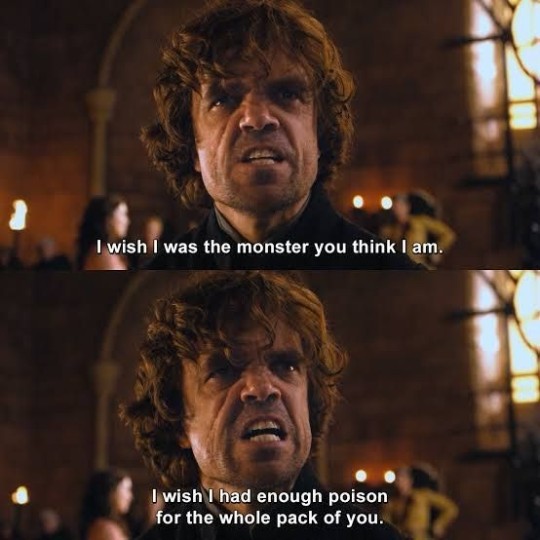
Nobody can really have a conversation with somebody when that person is rattling off about themselves or their dastardly plans etc. It's not really realistic but in fiction, we kind of want to allow characters to do on a little, to let loose and bare their soul in a speech worthy of Peter Dinklage's best work (Laws of Gods and Men, GoT Season 4). Personally I only give somebody monologuing a few minutes before I interrupt with the good old "that's crazy" or multiple "yeah"s. A character has to be captivated - or captive - to listen to somebody keep talking, talking, talking.
Interaction
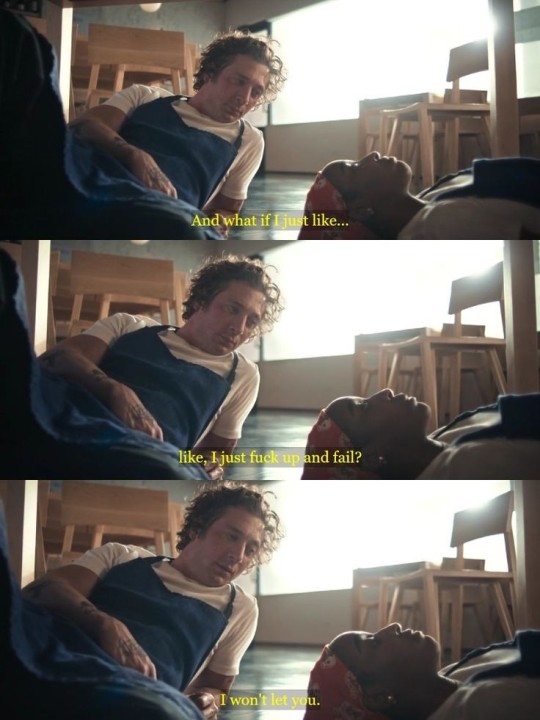
Again, your characters are meant to be real people, they are not robots on stage. When people are talking, it isn't perfect. When emotions are high, people will often cut across one another or interrupt one another. When characters are excited or in agreement, they might finish one another's sentences. The dialogue in The Bear, is fantastic for this as the interactions feel real. The characters interrupt one another, talk over one another and finish each other's thoughts. People follow a pattern of talking with people they know, they are less guarded and more prone to speaking their mind if they are comfortable with them or know what to avoid saying. People are more formal when speaking to strangers. People will speak differently to different people, there are things you can only say to your sibling and you wouldn't talk to a classmate you barely know the same way you will speak with a dear friend. The way character's interact can tell the reader a lot about the relationship between the characters.
275 notes
·
View notes
Text
"if you're going to write dark fiction you should explicitly state that it's not okay to do in real life so that a child doesn't see it and think it's okay"
actually i don't cater my art to children, my art is not intended for children, and it's not my responsibility to parent them. hope this helps
6K notes
·
View notes
Text
So to catch you up to speed
Luigi Mangione is an innocent man who has not been confirmed to have been involved in any crime.
We have police documents confirming he was not DNA tested or fingerprinted, and confirmation no usable DNA or fingerprints were recovered at the crime scene due to incomplete prints and immense DNA contamination of New Yorks streets.
No evidence has linked him to the crime.
No facial recognition has even remotely come close to identifying the cctv suspects face as that of Luigi. His own family and friends do not see a resemblance. Most people agree the features in the cctv do not match the very well documented features of Luigi Mangione.
Luigi Mangione has no history of violence nor with firearms. He is a vegan pacifist with no history of mental illness and an aversion to killing even bugs.
He is still only a SUSPECT and all involvement in any crimes are merely ALLEGED at this time. Alleged by the most corrupt police force in the entire nation; the NYPD who do more organized crime than they've ever stopped.
Luigi Mangione's attorneys confirmed they have been shown absolutely nothing that even places Luigi at the scene of the crime.
People have repeatedly tried to recreate the entire timeline of events and found it is not physically possible to do what was alleged in the time frame police gave. Especially dubious for Luigi Mangione to have done given his recent, crippling back injury.
Luigi Mangione in his own words has said police planted evidence on him and are not being honest about his arrest or what he had on him at the time.
There is no body cam footage of Luigi's arrest.
There is no autopsy report for Brian Thompson.
Luigi has so far been:
Stripped of his hat, jacket and shoes and forced to walk in the cold in December wearing wet socks.
Forced to urinate on himself where police then took and published humiliation photos of him.
He was then stripped of his shirt pants and socks and put in a blue psychiatric gown and strapped to a chair inmates called "the torture chair" and left for prolonged periods of time. To the point the entire inmate population at the prison protested in anger.
He was slammed unto a brick wall, choked, and shoved by various police officers for no reason.
Was marched through nyc at gunpoint by officers with military firearms, forced to wear chains
Was called a murderer by the mayor of NYC on national television.
Was then placed in solitary confinement for weeks. Something extremely damaging psychologically to be exposed to for even just a few days. Something usually reserved for cannibals.
He is now being forced to sleep on the floor despite again, a crippling back injury.
Again, he has not even had trial yet. He is an innocent man by the very definition of the law. He has nothing tying him to any crime. And even the crime itself was a nobody being shot in a city where nobodies are shot everyday, seven days a week. And those shooters don't get this treatment. Cannibals don't get this treatment. Serial killers don't get this treatment. Why are they doing this? Because we entered an oligarchy and they want people who are rich to matter more than people who are not. The NO ONE, no name, insignificant person that Brian THOMPSON always was and WILL ALWAYS BE is more important because of his net worth, to the fascist oligarchy we've entered into, than the innocent man, data scientist and robotics engineer with a promising future that is Luigi Mangione.
The NYPD doesn't want him to be innocent. They are torturing him gleefully and postponing his trial because they know he's innocent. They just want to scare the public into understanding that the ultra rich, even those who's names will never be remembered as anything other than markings on a never visited tombstone, are the only persons who matter now. Not yours. Never yours. You're poor. They'll torture you without a trial too. Your life means nothing to them. Your children dying in school shootings means nothing to them. Pinning a crime on an innocent man they can beat to scare the public out of class consciousness is the only thing that matters to them now. Depose them.
19K notes
·
View notes
Text
I don’t think I’d make a good children’s author because the newest plot points in my new brain tumbleweed are:
Our plot is kicked off by a minor villain summoning a legendary druid to essentially ask him annoying distracting questions so someone else can steal his stuff.
Our kid hero gets involved in the quest because of a magical postal mixup…
… That happened in part because she lied about her age to get postal order magical training pamphlets (learn magic at home!)
Her best friend just turned thirteen and suddenly can do magic and thinks this makes them completely qualified to handle this tome with ABSOLUTELY DO NOT OPEN THIS FOR GODS SAKE on it.
By the way, all our heroes are D/deaf or hard of hearing.
The big villain starts sending monsters through reflective surfaces to get them. They start off small and get ridiculously bigger until the last one can’t even get through the mirror.
Meanwhile, the minor villain has stolen the Druid’s magic and now keep static shocking himself on everything.
And he lost the druid.
Everyone’s absolutely horrified the fate of the world is in the hands of an eleven and thirteen year old, but every competent adult just keeps being taken out.
There is a cannibalistic horse.
It gets stupider.
119 notes
·
View notes
Text
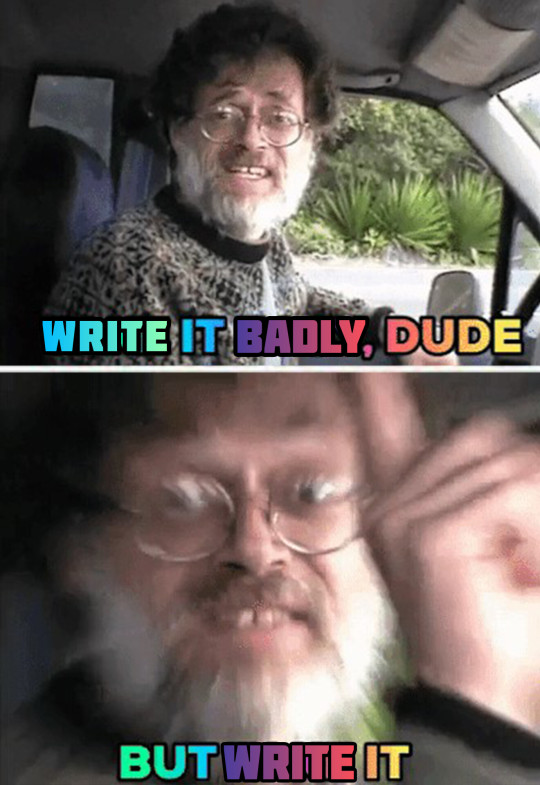
Telling myself this every day so here's a meme
86K notes
·
View notes
Text

Remember, everyone, we still have a system in place and the Constitution still exists. We are not in a full dictatorship, yet. We can not give in to despair at every single thing this new administration does, because those checks still exist.
And until they don't - and that's a big if - we must keep our heads about us. Do not panic. Do not fall into apathy. Do not do anything irreversible.
The system will not save us, but it can protect us from the worst possible outcome for now.
And we will continue to fight even once it can't or won't.
10K notes
·
View notes
Text
being a writer means spending 4 hours researching obscure facts for a single sentence no one will notice.
526 notes
·
View notes
Text
Also picking up new books you’ve never heard of before because the premise sounds neat or the cover is pretty or it’s on a themed library display or you’re just trying to read your library’s entire catalogue of 90s cyberpunk is just fun. Sometimes it’s not your thing but you get to mull over new ideas or the diversity of people and opinions and thoughts in the world. Sometimes you discover your new favorite book of all time
6K notes
·
View notes
Text

This shit costs 200rs... 2.1 $ or something... Why the fuck Americans are okay with this...
7K notes
·
View notes
Text
Them: you need to write the book if you want others to read it.
Me:

318 notes
·
View notes
Photo

General Differences Between Heroes and Anti-Heroes
35K notes
·
View notes
Text
J. R. R. Tolkien, undisputedly a most fluent speaker of this language, was criticized in his day for indulging his juvenile whim of writing fantasy, which was then considered—as it still is in many quarters— an inferior form of literature and disdained as mere “escapism.” “Of course it is escapist,” he cried. “That is its glory! When a soldier is a prisoner of war it is his duty to escape—and take as many with him as he can.” He went on to explain, “The moneylenders, the knownothings, the authoritarians have us all in prison; if we value the freedom of the mind and soul, if we’re partisans of liberty, then it’s our plain duty to escape, and to take as many people with us as possible.“
Stephen R. Lawhead
54K notes
·
View notes
Text
The best part of going through your old wips is you find great fics catered specifically to your tastes but the worst part is that they all abruptly stop a thousand words in and if you want more you have to write it.
2K notes
·
View notes



